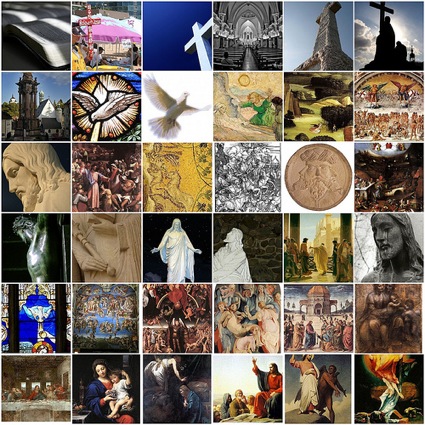There are two kinds of people in this world…
You can follow that statement by a lot of phrases. We love to classify things.

Here in the conclusion of his anthropological Christian apologetic, Chesterton doesn’t divide the earth into Christians and non-Christians directly, but in light of the preceding discussion, from a curious angle:
The religion of the world, in its right proportions, is not divided into fine shades of mysticism or more or less rational forms of mythology. It is divided by the line between the men who are bringing that message [the gospe of Jesus] and the men who have not yet heard it, or cannot yet believe it.
And later on:
Mohammed did not, like the Magi, find a new star; he saw through his own particular window a glimpse of the great grey field of the ancient starlight. So when we say that the country contains so many Confucians or Buddhists, we mean it contains so many pagans whose prophets have given them another and rather vaguer version of the invisible power; making it not only invisible but almost impersonal.
When we say that they also have temples and idols and priests and periodical festivals, we simply mean that this sort of heathen is enough of a human being to admit the popular element of pomp and pictures and feasts and fairy-tales. We only mean that Pagans have more sense than Puritans. But what the gods are supposed to be, what the priests are commissioned to say, is not a sensational secret like what those running messengers of the Gospel had to say. Nobody else except those messengers has any Gospel; nobody else has any good news; for the simple reason that nobody else has any news.
-G.K. Chesterton, The Everlasting Man, p.309 (Conclusion)
Well that’s it for The Everlasting Man. The copy I retrieved from the library now smells like campfire smoke from my family’s trip to the woods this past weekend. I hope they don’t mind too much.
